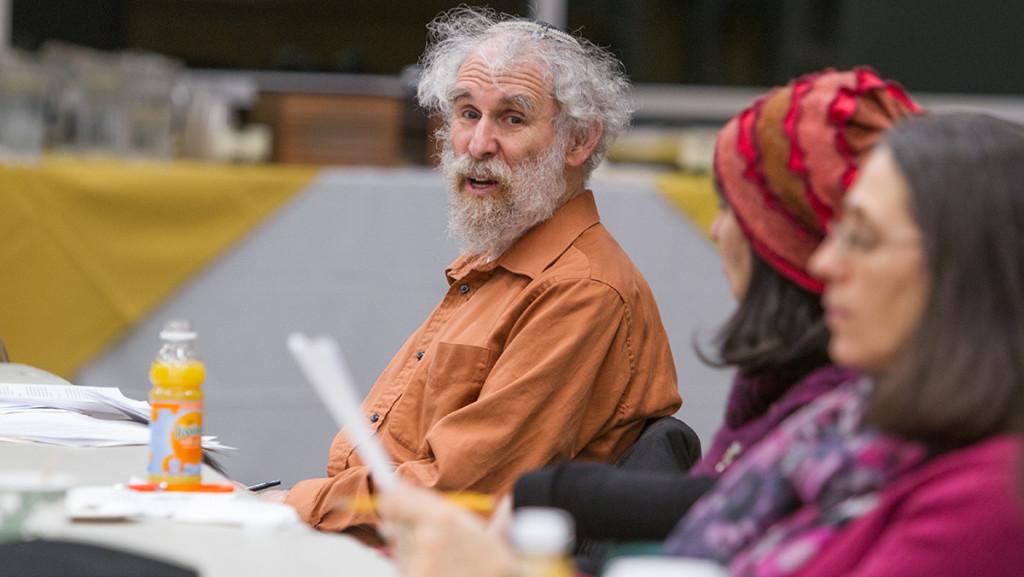The Faculty Council is planning to distribute Ithaca College’s budget to all faculty with the attached criticism that it is “deeply lacking detail.” The council is also preparing to launch its diversity and inclusion database by the end of this week.
John Rosenthal, council member and professor in the Department of Mathematics, and Tom Swensen, council member and professor and chair of the Department of Exercise and Sport Sciences, presented the summary of the approved budget for the 2016–17 fiscal year to the council at the March 22 meeting. Both Swensen and Rosenthal are members of the Institutional Effectiveness and Budget Committee.
Rosenthal said he was concerned with the ambiguity of where and how much money is being spent for each school, which is not broken down in the budget.
He said he’s also concerned about surpluses decreasing in the budget. He said the college is struggling because the amount of financial aid available is increasing, while the cost of attendance is also increasing this year at a growth of about 2.59 percent. He said the college will have to make adjustments because if the discount increases, while tuition barely increases, the college could come into tough times.
Swensen said he’s also concerned about the cost of tuition at the college.
“We’re trying to keep tuition low, but the students are our income,” Swensen said. “These services and programs cost money.”
Swensen said to combat this disparity within the budget, the college is planning on moving toward increasing fundraising efforts, like expanding contact to alumni, to help support the college.
Gerald Hector, vice president for finance and administration, said the college is willing to provide the monetary breakdown for each school. He said he thinks criticizing the budget as nontransparent is “an inflammatory statement” because he said the college has done all it can to be clear with the campus community about how the budget works.
“We will respond to whatever request any constituency group on campus would like to see, provided it can be produced with our current systems,” Hector said via email.
He said the college has held two information sessions this semester to help explain the budget to the campus community and field any questions or concerns.
Also discussed at the meeting was the diversity and inclusion database the council created to help educate the campus community after it criticized and protested President Tom Rochon and the administration for not doing enough to combat racial issues happening on campus.
The website is setup through Sakai and is going to be made public to all college employees and students in the near future. It provides articles and books on topics like bias, gender and race in higher education, which were collected from a number of on-campus groups like the Office of Student Engagement and Multicultural Affairs and the Center for the Study of Culture, Race and Ethnicity.
Jason Freitag, associate professor in the Department of History, was a part of the committee charged to create this website and said he wants it live as soon as possible so people can use it.
Freitag said the website also has an email address, [email protected], for people to send their feedback about the articles or suggestions to add more resources.
At a Faculty Council meeting held March 1, proposed changes to the Meal and Entertainment Policy were discussed, which is a plan to limit how much can be spent on food for campus meetings and events. The policy provides guidelines for the expenditure of college funds for “non-travel meals” — business meals and guest meals — and “other events” — receptions for retirement, student recognition ceremonies, receptions for employee key life events and farewell receptions, and training and instruction for faculty and staff.
The council decided to pass a motion to send a letter to the Task Force on Meals and Entertainment, which is overseeing the changes, about issues it had with its proposal about cuts to the meals and entertainment budget.
In its letter, the council asked for the freedom to order food from outside the college, flexibility to serve alcohol at employee events with a dean’s approval, freedom to hold events outside the college and the ability to have food served at meetings that are fewer than three hours long.







